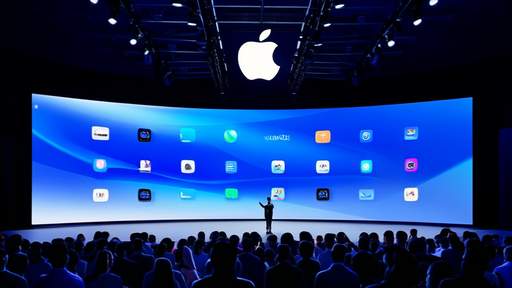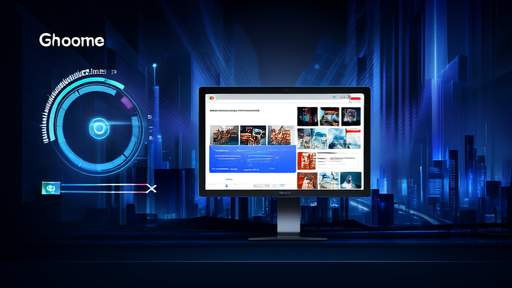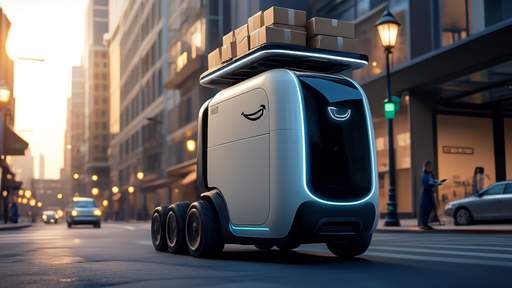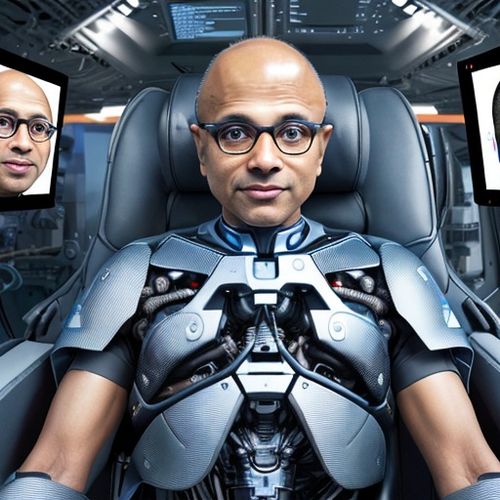As the tech world eagerly anticipates Google's biggest developer conference of the year, Google I/O, the buzz surrounding the event is palpable. Scheduled for May 20 to 21 at the Shoreline Amphitheatre in Mountain View, this year's I/O promises to be a showcase of groundbreaking product announcements and innovative advancements from across Google's extensive portfolio. From Android and Chrome to Google Search, YouTube, and the ever-evolving AI landscape, the conference is set to highlight the future of technology as envisioned by one of the world's leading tech giants.
The Android Show: A Sneak Peek
Earlier this week, Google provided a tantalizing preview of what's to come with The Android Show, an event dedicated solely to Android updates. Among the announcements were new ways to find lost Android phones and other items, enhanced device-level features for its Advanced Protection program, robust security tools to combat scams and theft, and the introduction of a new design language called Material 3 Expressive. These updates signal Google's ongoing commitment to improving user experience and security, setting the stage for even more exciting revelations at I/O.
Android 16: What to Expect
With Android 16 on the horizon, Google I/O is the perfect platform to delve deeper into this upcoming release. Reports suggest that Android 16 will bring improved notifications, support for Auracast (making it easier to switch between Bluetooth devices), lock screen widgets, and a range of new accessibility features. Additionally, Google may highlight advancements in Android XR, its mixed reality operating system, and Wear OS, the company's software for wearables. These updates are expected to enhance the overall user experience, making Android devices more intuitive and versatile.
Gemini and AI: The Future of Interaction
AI is undoubtedly the tech buzzword of the moment, and Google has been at the forefront of this revolution. At I/O, expect significant announcements related to Google's Gemini family of AI models. Leaks in recent weeks have hinted at an updated Gemini Ultra model, which could elevate Google's AI capabilities to new heights. This upgraded model might also introduce new subscription tiers, such as Premium Plus and Premium Pro, offering users enhanced features and functionality beyond the current Gemini Advanced plan.
Google's efforts to build AI apps and "agents" for real-time, multimodal understanding under the Astra initiative are also likely to be a focal point. Additionally, Project Mariner, Google's AI "agents" designed to navigate and take action across the web on behalf of users, may be unveiled. References to "Computer Use" in the code for Google's AI Studio developer platform suggest that Mariner could be a significant part of the AI landscape Google plans to showcase.
Chrome, Google Cloud, and Beyond
The official I/O schedule indicates that Google has much more in store beyond Android and AI. Sessions dedicated to Chrome and Google Cloud are expected to reveal new features and improvements aimed at enhancing productivity and security. Google Play, the Android app store, is also likely to see updates, potentially including new tools for developers and better user experiences for app enthusiasts.
Google's commitment to open AI models, exemplified by its Gemma collection, may also be highlighted. Last year's unveiling of LearnLM, a set of models fine-tuned for education applications, hinted at Google's broader vision for AI. This year, an upgrade to Google's viral podcast-generating NotebookLM could be on the cards, along with a "Video Overviews" tool leveraging Google's Veo 2 video-generating model to create video summaries.
The Broader Implications
Google I/O is more than just a showcase of new products and features; it's a glimpse into the future of technology. The announcements made at this conference often set the tone for industry trends and influence the direction of tech development worldwide. As Google continues to push the boundaries of AI, Android, and cloud computing, the innovations unveiled at I/O could have far-reaching implications for both consumers and developers.
For consumers, these advancements promise a more seamless, intelligent, and secure digital experience. For developers, the new tools and platforms introduced at I/O offer exciting opportunities to create innovative applications and services. The intersection of AI and everyday technology, as exemplified by projects like Gemini and Mariner, could redefine how we interact with our devices and the digital world.
A Vision for the Future
Google I/O 2025 is poised to be a landmark event in the tech calendar. With a focus on enhancing user experience, bolstering security, and advancing AI capabilities, Google is set to reveal a future where technology is more intuitive, accessible, and integrated into our daily lives. From the practical improvements of Android 16 to the groundbreaking potential of the Gemini Ultra model, the conference promises to be a showcase of innovation.
As we look forward to the revelations of Google I/O, one thing is clear: the future of tech is bright, and Google is leading the charge. Whether you're an avid Android user, a Chrome enthusiast, or an AI aficionado, there's something to be excited about at this year's conference. Stay tuned for what promises to be a thrilling glimpse into the future of technology.

By Christopher Harris/Jun 6, 2025

By Emily Johnson/Jun 6, 2025

By Laura Wilson/Jun 6, 2025

By Jessica Lee/Jun 6, 2025

By William Miller/Jun 6, 2025

By Victoria Gonzalez/Jun 6, 2025

By /May 21, 2025

By /May 21, 2025

By /May 21, 2025

By /May 21, 2025

By /May 21, 2025

By John Smith/May 19, 2025

By Sophia Lewis/May 19, 2025

By Christopher Harris/May 19, 2025

By Natalie Campbell/May 19, 2025

By Grace Cox/May 19, 2025

By Amanda Phillips/May 19, 2025

By Megan Clark/May 19, 2025

By Eric Ward/May 19, 2025

By Ryan Martin/May 19, 2025